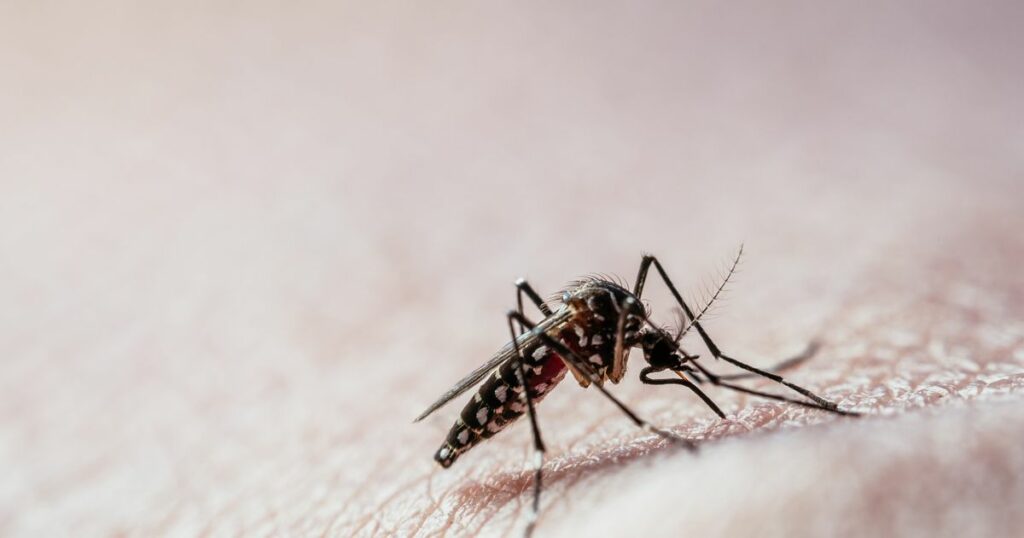Joao Paulo Burini/Getty Images
BZZZZ – Cozy up in your bed, you suddenly hear its buzzing near your ear. This characteristic noise is never appreciated, being the sign of a potential bite. However, not everyone seems to be in the same boat. Indeed, mosquitoes do not strike humans randomly, while some species have even specialized in tracking us down.
But how do mosquitoes concentrate to ferret out humans with such precision? This is the question that a new study published this Wednesday, May 4 in the journal Nature. The latter particularly focused on one species, the Aedes aegypti mosquito.
Indeed, these animals show an overwhelming preference for humans over other animals as explained in the study Zhilei Zhao, postdoctoral researcher in neurobiology and behavior at Cornell University.
Distinguish humans from other animals
It is now established that mosquitoes use their sense of smell to strike. Each animal (us included) releases an appetizing bouquet of odors for these insects. It could be bacteria (Brevibacterium sheets) on our feet, specific compounds (like lactic acid) that we emit when we sweat, or even carbon dioxide that we breathe out.
However, although scientists know the importance of these chemical signals for mosquitoes, most of them are common to many animals. So how do they manage to differentiate them and specifically target humans? The answer lies in the tiny brain of mosquitoes according to this new study.
To do this, the researchers used a technique that roughly consisted of flashing mosquito neurons using a fluorescent tool (CRISPR) when a nerve cell was activated. They then exposed the mosquitoes to a sample of odors collected from different animals, including humans, to observe which areas of the brain lit up in response to different scents.
open brain surgery
To be able to observe what was going on in the brains of the mosquitoes, the team had to operate on the insects alive by opening their skulls. The task here is much more difficult than a simple “crazy doctor”, since the brain of these animals measures approximately 0.5 millimeters in diameter.
Joao Paulo Burini via Getty Images
After analysis, it was found that a bulbous bundle of nerves, known as the glomerulus, showed a strong reaction to human smells (and weak to animal smells). Among these human odors, two in particular seemed to strongly attract mosquitoes: those called decanal and undecanal, which have a sweet, lemony smell, similar to orange peel.
Thanks to these discoveries, researchers could develop chemical formulas that would reduce the activity of glomerulus H, or even block it, which would make mosquito repellents more effective. Another application would be to use the odors that attract mosquitoes to create baits that would keep them away from humans.
See also on the HuffPost: Environment: France has already reached its resource overshoot day



